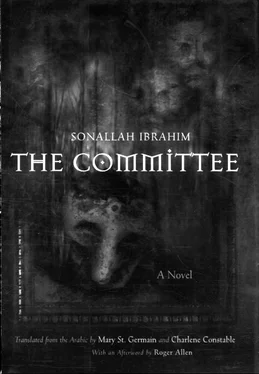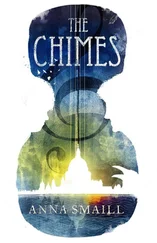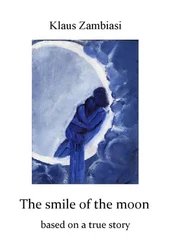As he poured, he indicated the nearest pile of books, "You like detective stories?"
"Definitely."
"But I see that you don't have even one work by Agatha Christie."
Drying the knife and hurriedly chopping the vegetables, I replied, "I only like certain kinds of detective stories: those based on action. The ones I like best have a hero who pursues criminals and gangsters and suffers every hardship in the process. Most of the time he protects the weak or defenseless from society and the dominant classes."
"You're a real humanitarian," he said derisively.
Sipping my coffee, I said, "Not at all. Indeed, some people might think I'd regressed to adolescence. Others might consider it merely evidence of the child within every person. But I believe there's more to it than that. Our fascination with this kind of story expresses an inability to act when necessary and goes hand in hand with the natural, rightful desire of every person for evil to be punished and good to triumph."
After a moment, I continued, "Such stories don't require much mental effort from the reader, because they are built on action. However, this doesn't mean that Agatha Christie's stories are distinguished by a high intellectual level. From a flight of fancy, she creates simplistic mysteries not worth puzzling over when reality itself teems with true mysteries requiring all one's faculties."
Trying to get under my skin, he said, "Now we're getting back to discussing unsolved mysteries and strange phenomena. I'm beginning to wonder whether you're of sound mind."
I understood that he was pulling my leg, but I didn't rise to the bait, rather waved the knife in the direction of the =ap and said, "You're laughing at me. But what about the black tap water? Isn't that a true mystery?"
"And what else?" he said calmly.
I plunged ahead rashly, "There are many of them, if you like, take the Doctor's position on the problem of war and peace. In some short newspaper interviews, he portrayed war as the only means for recovery of usurped rights. Meanwhile, in other interviews he asserted that peace was the only means."
He interrupted me to ask, "What's the inconsistency?"
"The inconsistency is that in the first case, when he speaks of war, you find him working energetically on projects that require, indeed require first and foremost, peace. In the second case, when he speaks of peace, you find him caught up in forming a corps of mercenaries to offer to whomever will pay the price."
I stopped to check the rice and turn down the burner. Then I rinsed the half chicken and readied a frying pan.
I continued, "If these aren't enough, there is a third mystery for you. The instructions on foreign medicines sold in our country prescribe a larger dosage than that prescribed for patients in the countries where they are manufactured. Why?"
I put two tablespoons of oil in the frying pan and slid the half chicken in, having stepped back a little so that the hot oil wouldn't spatter me.
Still at the height of enthusiasm, I said, "How do you account for the map hanging in the Israeli Knesset? Although the Israelis proclaim that it was their ancestors who built the pyramids located on the western bank of the Nile, this map shows Israel's proposed borders on the eastern bank."
He didn't bother to argue, being more interested in listening, as though giving me enough rope to hang myself. I noticed this suddenly, when a gleam of enjoyment appeared in one of his eyes. Putting the food on the table gave me the opportunity to change the subject.
Sitting down opposite him, I said, "Perhaps you noticed my collection of stories by the Belgian writer Georges Simenon. I am truly a devotee of him and his hero, Inspector Maigret. Although his stories are not `action oriented,' being closer to true mystery stories, they nevertheless surpass Agatha Christie's in that they are dis=inctive for their psychological depth and sociological dimension. They substantiate the fact that most of an ordinary man's contradictory attitudes are stored up in the unconscious. At a certain point in this accumulation, something occurs, like the straw that broke the camel's back, and the man acts completely out of character with everything he has ever done. A peaceful man who has never committed a single violent act is capable of perpetrating the most heinous crime of premeditated murder."
He didn't comment, but gave himself up wholeheartedly to eating with his familiar appetite. I began to watch him quietly. He clutched the drumstick firmly, carriec it to his mouth with a steady hand, then bit into it with gusto. Concentrating hard, he chewed until it was pulverized.
It occurred to me what was missing in my life-to be precise, this manner of eating, which springs from an interest in life, a lack of hesitation in meeting danger, and persistence in defeating it.
We finished eating. I cleared away the dishes and put them in the kitchen sink. We went along to the bathroom and washed up. After that, we holed up in the inner room, each settling into his place.
I lit a cigarette. No sooner had I taken two puffs than the familiar drowsiness I always feel after eating overcame me. I felt that my exertions had stretched me to my limits and that I was in dire need of a short nap.
"Wouldn't you like a bit of a rest? I usually sleep a little after dinner," I remarked.
He took his time answering. "It isn't my custom to sleep during the day. And as for you, I don't believe you're in a position to waste time sleeping."
I understood what he meant and turned my attention to the box of index cards. I began to leaf through them, although my burning eyes couldn't make out anything written on them.
He'd relaxed peacefully in his chair, his eyes fixed on the ceiling, on a point above my head. He became com pletely absorbed in his thoughts. It was as if he'd turned into a statue. ~ — i
My head felt heavy, so I let it droop forward a little. I couldn't resist the temptation to close my eyes. Suddenly, he addressed me urgently, "Could you accompany me for a moment?"
I saw that he had stood up tensely. Startled, I left my seat. My heart began to pound. I followed him out. He went into the bathroom saying, "Please stay right there until I'm done."
He left the door open so he could see me. After dropping his pants, he settled onto the plastic seat. I turned my back and stood looking at the books arranged along the hall, most of which I had purchased in preparation for my first interview with the Committee. I had arranged them strictly by subject, grouping the economic and political studies together, including some excellent studies on foreign interests in the Arab world and a distinguished work on the military in third-world countries. The latter study included a brilliant chapter on the roots of the obviously sadistic behavior of thirdworld leaders, which may shed some light on the bloodthirstiness of Arab leaders.
I had reserved a corner for the most important works of serious literature. Many names were ranged there, from Shakespeare, Pushkin, and Cervantes to Garcia Marquez and Naguib Mahfouz.
In a prominent place I collected everything pertinent to the careers of several world figures, such as the prophet Muhammad, Abu Dharr al-Ghafari, Abu Sa'id al-Jinabi, Ibn Rushd, al-Ma'arri, Karl Marx, Freud, Lenin, Jamal al-Din al-Afghani, Taha Husayn, Madam Curie, Albert Schweitzer, Fucik, Castro, Guevarra, Lumumba, Ibn Baraka, Shohdi Attia, and Gamal Abd al-Nasser, who set the standards for human endeavor by their ideas, experiences, and sacrifices.
A sharp metallic sound roused me from my contemplation of these names. In spite of myself, I turned around to see a strange sight: his pants bunched around his ankles and the rest of his body bare, Stubby was leaning over to pick up a big black revolver that had fallen to the floor.
Читать дальше











